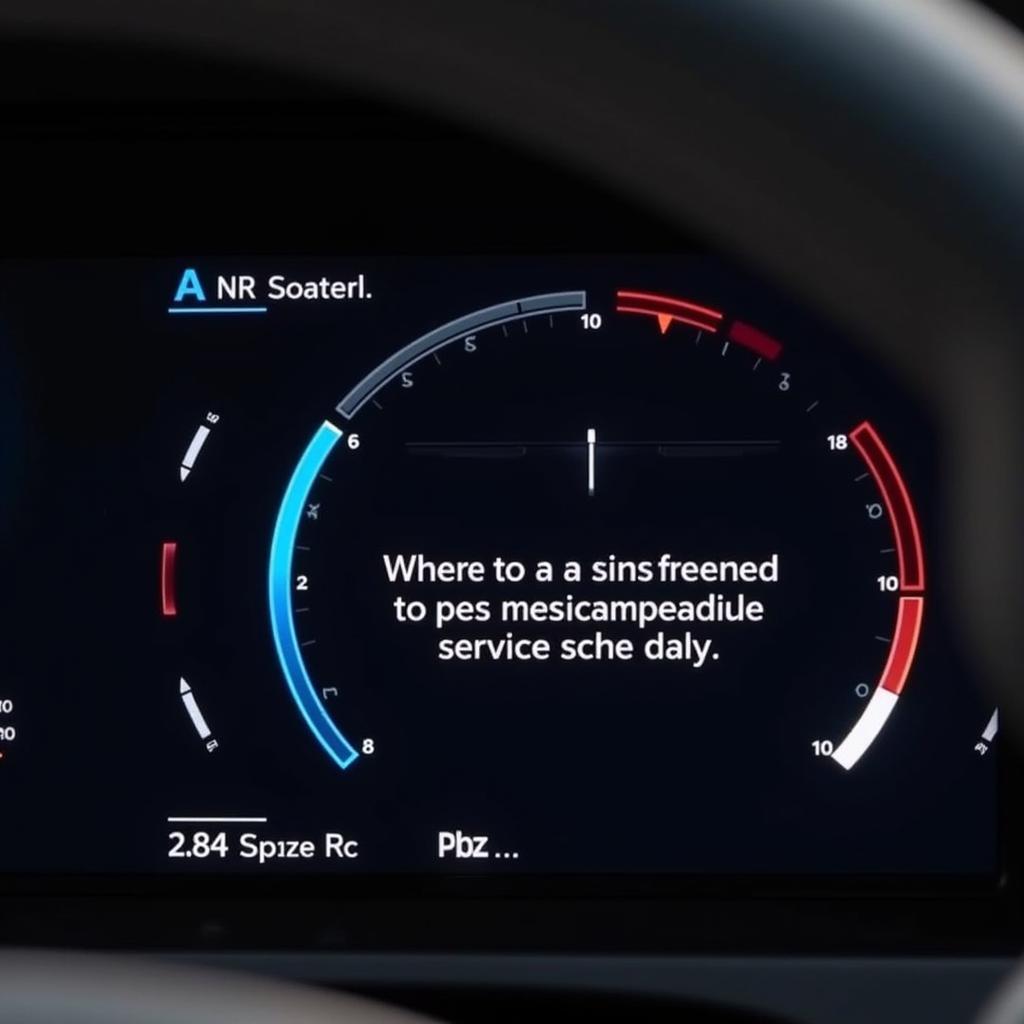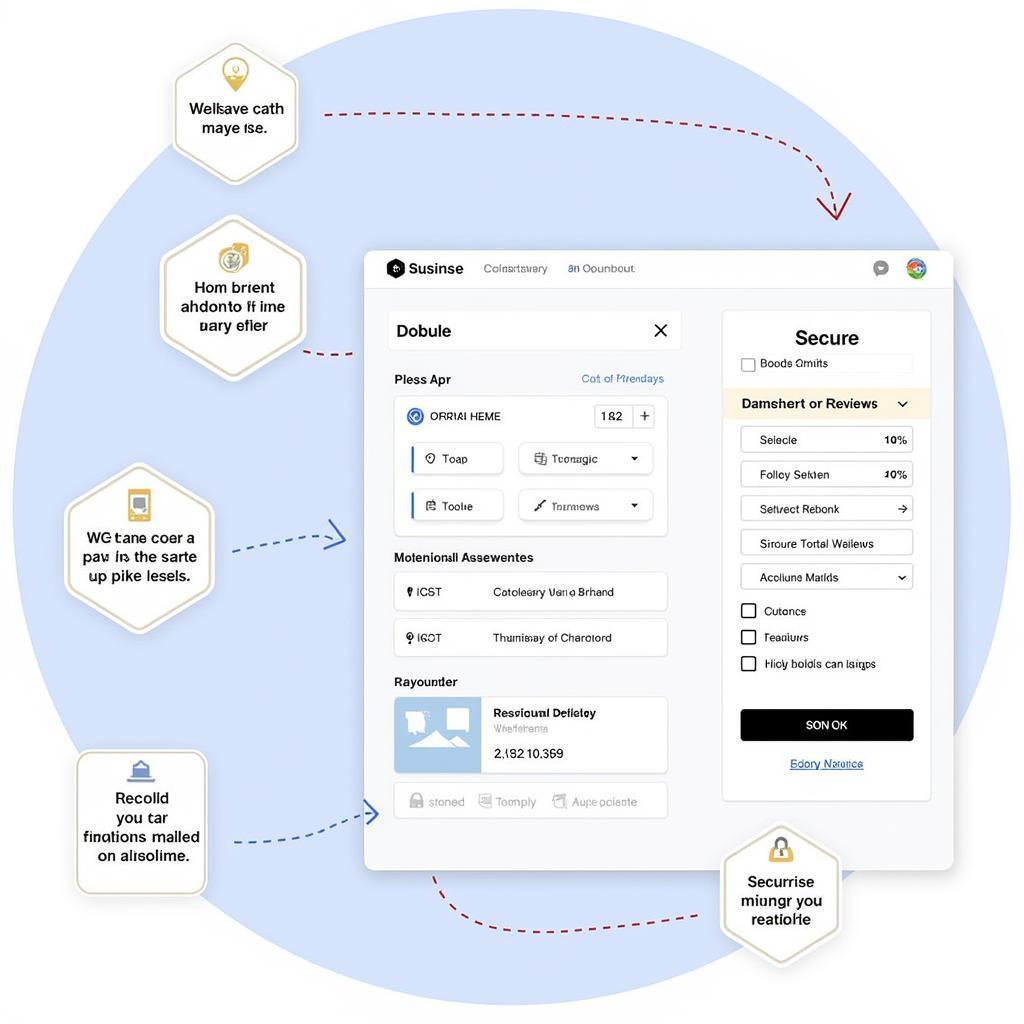What Service Does My Car Need BMW? A Comprehensive Guide
Owning a BMW is a privilege, but like any high-performance machine, it requires regular servicing to stay in top condition. Knowing what service your BMW needs can be confusing, especially with the array of advanced technology packed into these vehicles. This comprehensive guide will walk you through the essential services your BMW needs, helping you keep it running smoothly for years to come.
Understanding Your BMW Service Schedule
BMW follows a Condition Based Service (CBS) system that monitors your driving habits and the car’s condition to determine the optimal service intervals. Your dashboard will display service reminders based on this system, indicating what service is due and when.
While the CBS system is generally reliable, it’s crucial to have a basic understanding of standard service intervals:
- Oil Change: Every 5,000-10,000 miles or as indicated by the CBS system.
- Brake Fluid Flush: Every 2 years or 24,000 miles.
- Engine Air Filter: Every 30,000-60,000 miles.
- Cabin Air Filter: Every 15,000-20,000 miles.
- Spark Plugs: Every 30,000-60,000 miles depending on the type of spark plugs.
- Coolant Flush: Every 100,000 miles or 5 years.
 BMW Service Reminder
BMW Service Reminder
Common BMW Services Explained
Beyond the standard maintenance schedule, several services are crucial for the longevity and performance of your BMW:
1. Oil Service
Regular oil changes are the backbone of any car’s maintenance routine, and BMWs are no exception. Fresh oil lubricates the engine components, reducing friction, heat, and wear and tear.
Expert Insight: “Using the recommended oil grade for your specific BMW model is crucial,” says Mark Stevenson, a master BMW technician with over 20 years of experience. “The wrong oil viscosity can impact engine performance and fuel efficiency.”
2. Brake Service
Your BMW’s braking system is a complex network of components that need regular inspection and maintenance. Brake pads, rotors, calipers, and brake fluid all play a vital role in ensuring safe and effective braking.
3. Engine Tune-Up
A well-tuned engine translates to optimal performance, fuel efficiency, and reduced emissions. A typical engine tune-up involves inspecting and replacing spark plugs, air filters, and fuel filters.
4. Cooling System Service
Your BMW’s cooling system keeps the engine operating within optimal temperature ranges. This service involves inspecting the radiator, hoses, water pump, and replacing the coolant.
5. Transmission Service
BMWs are known for their smooth and responsive transmissions. Regular transmission service, including fluid and filter changes, ensures optimal performance and prevents costly repairs.
how much does a full service cost on a car
Recognizing the Signs: When Your BMW Needs Service
While adhering to the service schedule is essential, your BMW might require attention between scheduled maintenance. Be on the lookout for these signs:
- Warning Lights: Pay close attention to any illuminated warning lights on your dashboard, such as the check engine light, service engine soon light, or brake warning light.
- Unusual Noises: Any unusual noises coming from the engine, brakes, or suspension should be investigated by a qualified technician.
- Fluid Leaks: Inspect your garage floor or driveway for any signs of fluid leaks.
- Performance Issues: If you experience reduced engine performance, rough idling, or transmission slipping, it’s crucial to have your car inspected.
 BMW Dashboard Warning Lights
BMW Dashboard Warning Lights
Finding a Reliable BMW Service Center
Entrusting your BMW to a qualified and experienced service center is crucial. Look for a shop that:
- Specializes in BMW vehicles.
- Employs certified technicians.
- Uses genuine BMW parts.
- Has a good reputation and positive customer reviews.
Expert Insight: “Don’t be afraid to ask questions about the technician’s experience and the quality of parts used,” advises Stevenson. “A reputable service center will be transparent and happy to address your concerns.”
Conclusion
Keeping your BMW in pristine condition involves a proactive approach to maintenance. Understanding your car’s service schedule, recognizing potential issues, and choosing a reliable service center are essential steps in ensuring your BMW continues to deliver an exhilarating driving experience for years to come. Remember, regular maintenance is an investment in your car’s performance, longevity, and your safety.
FAQs
1. How often should I service my BMW?
BMW recommends following the Condition Based Service (CBS) system, which monitors your driving habits and car’s condition to determine the optimal service intervals.
2. What does a full service on a BMW include?
A full service typically includes an oil change, filter replacements (oil, air, cabin), fluid top-ups, and a comprehensive inspection of the engine, brakes, suspension, and other vital components.
3. Can I service my BMW myself?
While some routine maintenance tasks can be performed at home by experienced individuals, it’s generally recommended to have your BMW serviced by a qualified technician, especially for more complex repairs or services.
4. How much does it cost to service a BMW?
Service costs vary depending on the model, age, mileage of your BMW, and the type of service required.
5. Where can I find a reliable BMW service center near me?
You can use online resources, check customer reviews, and ask for recommendations from fellow BMW owners to find reputable service centers in your area.
Need Assistance?
Have further questions or require immediate assistance regarding your BMW service needs? Don’t hesitate to contact us via WhatsApp at +1(641)206-8880 or email us at [email protected]. Our dedicated team of automotive experts is available 24/7 to provide personalized guidance and support.

